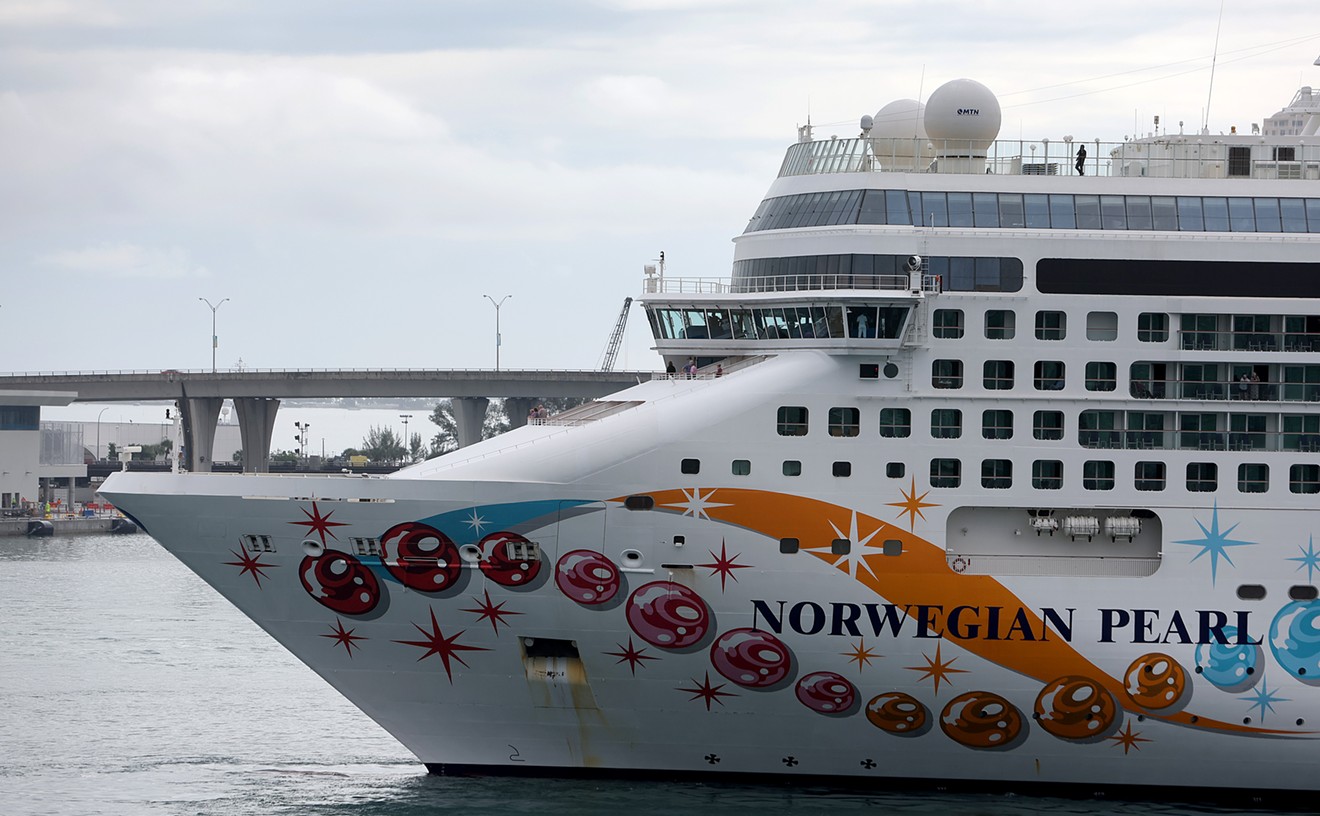Dubbed "Miami's Great Inflection: Toward Shared Prosperity as a Creative and Inclusive Global City," the 34-page report is basically a customized, citywide self-help book. And judging by the language used, we do mean "self-help." Turns out we shouldn't think of our traffic problem as a traffic problem, but rather as a "success crisis."
We hope all of the idiosyncratic wording in this report is secretly designed to get city leaders to do something. But in case you don't have time to flip through and translate the report into common English yourself, here's our "real-talk" breakdown of what Florida and his panel recommend for Miami:
"Take even greater advantage of the region's size and scale."
Real-Talk Version: We need to play nicer with our other friends in Florida, and not just Broward and Palm Beach.
Miami-Dade likes to think of itself as something of a sovereign city-state. Occasionally, we'll play nice with Broward and Palm Beach and admit we're part of a larger metro area.
The report, however, says we need to begin thinking of ourselves as the hub of a "mega-region" that extends all the way to Tampa and Orlando. The "So-Flo"
"Leverage the region's role as a hub for globalization."
Real-Talk Version: Miami is already a major trade and logistics center. We just need to keep doing that, but perhaps better.
We have a busy port, a busy airport, and lots of companies that do international business. Which is good. We just need to do more.
"Broaden and deepen the region's growing startup ecosystem."
Real-Talk Version: We need to be more
"Greater Miami ranks 101 out of the nation’s 350-plus
Though we have a lot of startups and small businesses, not many of them specialize in technology or other high-paying growth fields. The report, however, suggests we need to do more than simply encourage nerds to make apps. New tech businesses should find ways to complement industries that are already strong in the area.
"Build a fully creative economy."
Real-Talk Version: Attract less soul-sucking, dead-end jobs and more "creative" ones.
The report defines "creative class" jobs as those in "science, technology, engineering, architecture, media, arts, academia, finance, medicine, and business management." Only 25.8 percent of all people in the Miami area work in those fields. We need to up that number.
"Upgrade the region's service industry."
Real-Talk Version: Service industry jobs suck here.
The report notes that 53 percent of Miamians work in the service sector, and they make, on average, $32,000 a year. This sector includes positions such as retail clerks, restaurant cooks, waiters, hairstylists, security guards, nurses' aides, and dog walkers.
The report suggests transforming many of those lower-skilled jobs into "higher-paying, more secure, [and] more knowledge-intensive" positions even if they remain in services. Which, the report admits, would not be an easy task.
"Capitalize on brain circulation."
Real-Talk Version: Get more smart millennials down here.
We all know Miami's best and brightest kids have a tendency to get out of town as soon as they get their high-school or college diploma. The report says don't even worry so much about it. Instead, it suggests replacing those local-bred kids with other, smarter millennials from elsewhere. Which realistically means Latin America and the Caribbean, but perhaps also Canada, Europe, and the Eastern Seaboard.
"Promote the region's tolerance and diversity as economics strengths."
Real-Talk Version: Don't start hating people anytime soon.
"Greater Miami’s status as perhaps the most
"Use quality of place as a key economic driver."
Real-Talk Version: Brag about how pretty and nice it is here.
I think we actually already do this pretty well. Maybe we can all stop complaining about the recent rain on Snapchat, though.
"Engage all of
Real-Talk Version: Stop rampant income inequality. The huge gap between rich and poor in South Florida is a drain on the entire local economy.
"Address the region's growing crisis of success."
Real-Talk Version: Traffic sucks.
"Success" apparently means population growth, and "crisis" means we haven't built enough roads or public transit infrastructure to keep up with the growth. That translates to South Florida's notoriously horrible traffic.
This is a particularly interesting way of putting it, but perhaps the wording can persuade someone somewhere in some bureaucratic chain to do more to fix it.











